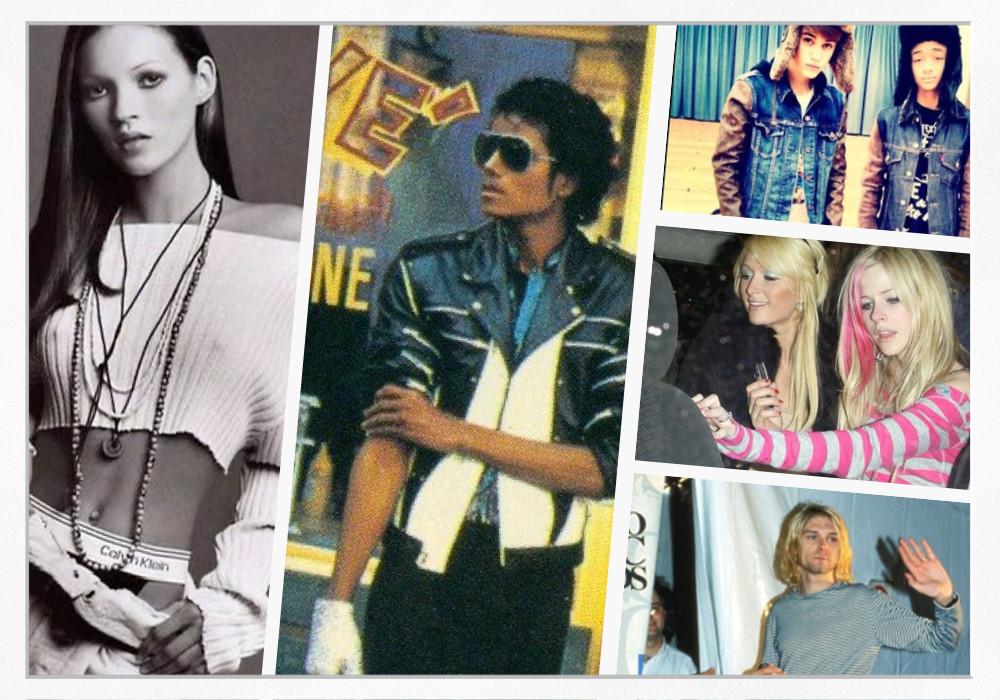True style isn’t taught or replicated – it’s cultivated through time and experience. Personal style, as the name suggests, is a form of self-expression – a way to communicate who we are through emotion, something we feel and live. The key here is experience. Experience is the foundation of self-expression and, by extension, personal style.
But what happens when our lived experiences are increasingly shaped – or even defined – by social media? Over the past decade, the blurred lines between offline and online spaces, coupled with our growing dependence on social media, have radically changed how we perceive personal style. What once took years to craft can now be replicated in a matter of hours with just a few clicks and scrolls.
Where individuality once reigned, personal style is now often a byproduct of algorithmic curation. In this digital era, we are defined less by what we create and more by what we consume.
Read More: From Birkin To Wirkin – How A USD$78 Bag Is Dismantling Luxury Fashion’s Elitism

From Online Communities To Commodities
Most social media platforms – Instagram, TikTok, Xiaohongshu (RedNote), X, Facebook, even WhatsApp – are built on infinite-scroll models designed to keep you hooked. Before you know it, hours have slipped by. You’re overstimulated, overwhelmed, and drowning in endless content.
But hey, it’s free entertainment…right? Not exactly – you’re paying with your attention. Platforms track everything: your scrolling habits, the posts you pause on, even your subconscious preferences. This data is then turned into commodities, repackaged as products, trends, and aesthetics, ready for you to consume.
We’ve come a long way from the days of MySpace and early Facebook, when the ‘social’ in social media was about connecting with friends and sharing everyday moments. Now, social media platforms function as marketplaces disguised as communities. Brands reach your screen through influencers who seem authentic and relatable enough to earn your trust, but polished enough to sell you a fantasy. It’s a paradox: aspirational lifestyles curated to feel somewhat attainable, yet always just out of reach. New season, new wardrobe. A sale here. Another haul there. GRWM! On social media, it all boils down to one thing – content created for consumption.

Fashion Has Lost Its Rhythm
Fashion no longer moves in predictable cycles. The constant stream of micro-trends flooding social media has rendered seasonal trend reports nearly obsolete. What was once the gold standard of trend forecasting now struggles to stay relevant in a world ruled by fleeting attention spans. Trends no longer follow the rhythm of the seasons – they appear and vanish in the blink of an eye. The relentless race to keep up with what’s trending is exhausting. Nothing endures. Today’s must-have is relegated to history by tomorrow.

The Death Of Discovery: How Social Media Algorithms Rewrote Fashion
Algorithms have reshaped how we engage with fashion, replacing authentic discovery with spoon-fed recommendations. Inspiration once meant flipping through magazines or browsing store racks. Now, algorithms decide what you’ll see, bombarding you with suggestions until you’re left questioning whether you genuinely like something – or if you’ve simply been conditioned to. Take baggy jorts, for instance. Do you really love the look, or did seeing them all over your feed convince you to? Social media algorithms have turned personal style into something curated for you, not by you.

The pandemic accelerated this shift. Stuck at home, we turned to social media for connection, work, and entertainment, handing algorithms unprecedented influence over our lives. Platforms seized the moment. TikTok exploded, churning out aesthetic blueprints like blokecore, coastal grandmother, office siren, and old money. Social media has become a vast pool of work and creativity reduced to nuggets of bite-sized content waiting to be consumed. Ironically, this over-saturation drives us further from the originality we yearn for, and personal style becomes more about imitation than self-expression.

The Internet Is Real? The Blurred Boundaries Between Digital And Physical Worlds
One major shift in internet culture isn’t just structural – it’s how we engage with content and how it shapes us in return. In the past, our digital selves offered only glimpses of our lives. Now, the lines between online and offline identities have blurred. No longer simply reflecting who we are, these digital personas actively shape who we become. Social media algorithms don’t just complement reality – they dictate it.
Social media enables us to interact with anyone, anywhere, in real time. We can form friendships, exchange advice, and share life stories with the world in just a few clicks. But every like, comment, and share feeds a craving for validation, subtly influencing how we perceive and present ourselves. Validation builds confidence, and confidence shapes self-expression. Yet, prolonged exposure to these interactions has warped how we view connection. People sulk over getting 10 Instagram likes, but imagine 10 people complimenting you in person – suddenly, it’s a different story. Increasingly, we rely on external approval to feel worthy or relevant. And how do we get that fix? Quickly, effortlessly, and algorithmically.
David Chalmers explores this dynamic in Reality+, arguing that virtual spaces aren’t separate from reality but extensions of it. Online interactions don’t just exist – they carry weight, shaping and influencing who we are offline. When algorithms govern these spaces, driving our experiences, the line between the two dissolves. Personal style, once shaped by lived experiences, is now moulded by the algorithm’s priorities, which dictate what we value, how we dress, and ultimately, how we choose to express ourselves.

The Psychology Of Trends And Overconsumption
Social media preys on our desire for instant gratification. Every click, scroll, and like triggers a dopamine hit, trapping us in a feedback loop of overconsumption. Over time, this cycle creates a sense of emptiness – an endless chase for the next trend to momentarily fill the void. Rinse, repeat.
For once, the algorithm isn’t solely to blame – it’s psychological. Humans crave identity anchors, and social media’s fixation on aesthetics and XYZ-cores exploits this instinct to the fullest. It traps us in yet another paradox: the freedom of endless options has confined us. Everything needs a label, a title, or at least a hashtag. Blokette, what? Cinnamon butter cookie hair – so, medium warm brown? Algorithms thrive on compartmentalisation because it simplifies marketing and selling.
The issue isn’t the labelling itself – it’s our unyielding grip on these labels to define our identity. Online, these labels become identity tokens, providing the clarity we desperately seek. It’s the same instinct that draws us to MBTI types or zodiac signs – labels offer a sense of belonging. But people are complex. We can’t – and shouldn’t – be boxed into a single label for the aesthetic.

Our reliance on reductive labels stifles creativity. Social media doesn’t just reflect our identities – it distorts them. Instead of exploring styles on our own terms, we’re handed pre-packaged aesthetic blueprints, courtesy of algorithms and influencers. Trends stop feeling like fashion experiments and start resembling checklists – something to chase before it becomes ‘mainstream’ or, worse, ‘basic.’ It’s easy to see how creativity has been traded for convenience, but is it too late to reclaim our individuality? Not if we change our mindset.

Reclaiming What’s Personal
True style is shaped by lived experiences – the people you meet, the way you choose to live, and the adventures you pursue – offline. It’s about shifting the focus to how you feel, not what the comment section dictates. And this goes beyond style – it’s about breaking the cycle. Algorithms aren’t going anywhere, but we can rediscover style on our own terms. Social media can be an incredible source of inspiration, as long as we don’t let it consume us. Step outside, live your life, touch grass, feel the sun on your skin, and let those experiences naturally shape your personal style over time. In a world that thrives on conformity, carving out space for individuality is the first step toward breaking free from these godforsaken shackles. Remember, true style is personal. And what’s personal starts with you.

Rachel Tang
Rachel Tang is the Social Media Manager and a contributing writer at Friday Club., where she combines her expertise in PR and Marketing with a passion for storytelling. She began writing for a media platform early in her career, which sparked a love for storytelling that still drives her work today. With a deep passion for fashion, music, and all things pretty, Rachel is always on the lookout for the next best thing – and she’s quick to rave about it to those around her.




super thoughtful piece! would like to say that we are more than just slaves to social media algorithms, but it does play such a big role in our lives – even passively – that it’s hard to confidently say that. social media can be such a good tool, but the lines between online and offline blurred so much that i feel like we serve the media rather than the media serving us.